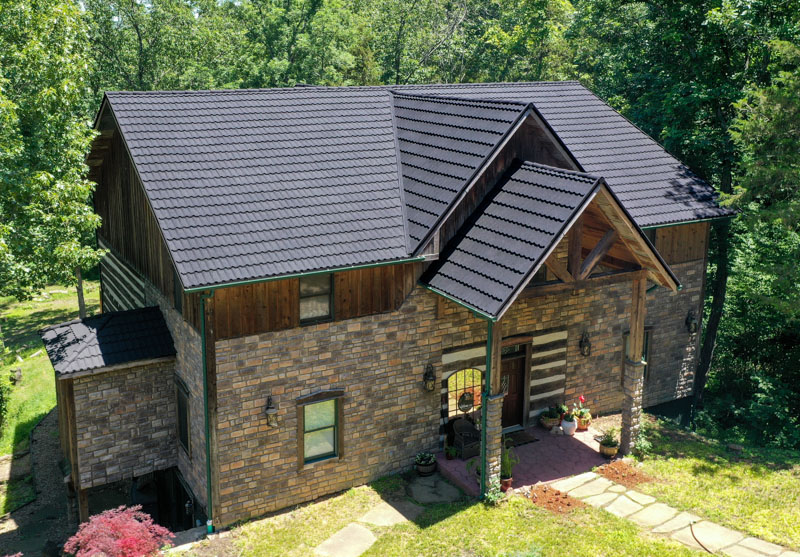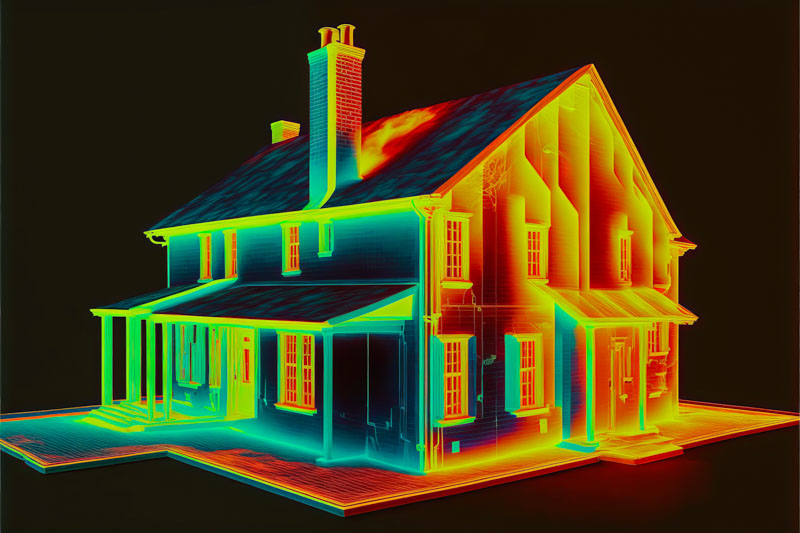Are you looking for a durable, long-lasting roof for your Pennsylvania home? Not all roofing materials are equal in lifespan and sustainability. Depending on the type of roof you choose, you could find yourself in the market for a replacement in just a few short years – or you could invest in a roof that lasts for as long as you own your home.
Since roof replacements can put a burden on your checkbook, you want to choose a roof that can pay for itself in the long run. For best results, choose a metal roof for your Pittsburgh home – this roofing material can last up to 50 years when professionally installed. Still not convinced? Here’s what you need to know about roof longevity.
In This Article
What Is the Lifespan of a Metal Roof?
Manufacturers create metal roofs out of metal sheeting, usually galvanized or stainless steel. Roofers design the metal sheeting based on your specifications. Metal roofs can come in a variety of textures and colors, and roofers can mold the sheeting to conform to your roof configuration.
Since they are made out of very strong materials, metal roofs can last up to 50 years. Because of this massive lifespan, your metal roof will likely last just as long as you own your home. Many manufacturers provide a lifetime warranty with metal roofs.
If you want to sell your Pennsylvania home later, you can increase your property’s market value simply by having a metal roof. These roofs are virtually indestructible and can withstand high winds, snowstorms, heavy hail, and other forms of bad weather. The protection alone is enough for you to see an increase in your property value.

What Are the Lifespans of Other Roofing Materials?
Compared to other roofing materials, metal roofs are unbeatable in terms of life expectancy and element protection. Depending on the construction, installation, and durability of the material you select, you can see life expectancies up to 50 years.
● Asphalt shingles are the most common roofing material among many homeowners. Asphalt shingles can last up to 30 years. Most manufacturers provide a warranty between 15 and 25 years.
● Manufacturers usually make wooden shake tiles out of pressure-treated wood. They are slightly more expensive than asphalt shingles. However, wood shingles can only last around 30 years. In addition, they are not as durable as metal roofing materials.
● Clay tile roofs can last up to 40 years. However, these tiles can break and are extremely heavy. Due to this excess weight, your home can feel a significant structural strain.
Other common roofing materials and their lifespans rarely match the longevity of metal roofs, such as:
● Aluminum Coating: 3 to 7 years
● Cellulose Fiber: 20 years
● Coal and Tar: 30 years
● Fiber Cement: 25 years
● Modified Bitumen: 20 years
● Architectural Asphalt: 30 years
Roof replacements after the material degrades over time can be expensive. You want to choose a roofing material that lasts for as long as you own your home or plan to own your home. The longer your roofing material can last without regular replacement, the higher the value of your property.
Metal Roofs’ Lifespans Extend Longer Than Eighty Years?
Some of the greatest benefits of a metal roof include its ability to withstand harsh weather conditions and its long-lasting qualities. However, another amazing advantage of this roofing material is that it is one of the most sustainable and eco-friendly options on the market.
Metal roofs are renewable and recyclable. In fact, we recycle approximately 88% of all steel products into new materials. Your metal roof can contain as much as 25% to 95% recycled content – making it one of the most eco-friendly and sustainable materials on the market.
Metal roofs do not have easy-to-break shingles and last for years without damage. Better yet, at the end of their lifespan on your roof, manufacturers can turn your old metal roof into more roofing materials to benefit future properties.

Additional benefits of metal roofs and their sustainability include the following:
● Many metal roofs have certifications from the U.S. Green Building Council Leadership in Energy and Environmental Design (LEED) Green Building Rating System. This means that metal roofs meet and exceed internationally accepted green benchmarks for their design, operation, and construction.
● Manufacturers make metal roofs out of largely recycled content, which is more environmentally friendly than materials in other roofing systems. By using metal roofing, you avoid the use of harmful products and fumes and invest in sustainability.
● Metal roofs allow you to recycle current resources for the benefit of the environment. Your roofing is 100% recyclable, unlike other materials that can go straight to the landfill. If you ever need to replace or discard your metal roof, roofers can melt it down and use it to make new products.
● In addition to manufacturers constructing them out of renewable materials, metal roofs can help you significantly reduce your energy footprint. Metal roofs are reflective and energy-efficient, helping retain warmth in cold weather and circulate cool air in hot weather. As a result, you do not have to crank the heat or blast the air conditioning as often, reducing your energy usage. In addition, you can enjoy a reduced energy bill with a metal roof. You do not enjoy this benefit with materials such as asphalt shingles, since they absorb energy and have the opposite effect.
If you are in the market for a roof replacement, choose a metal roof. You will invest in longevity and durability, as well as ensure a low energy footprint and sustainability.
